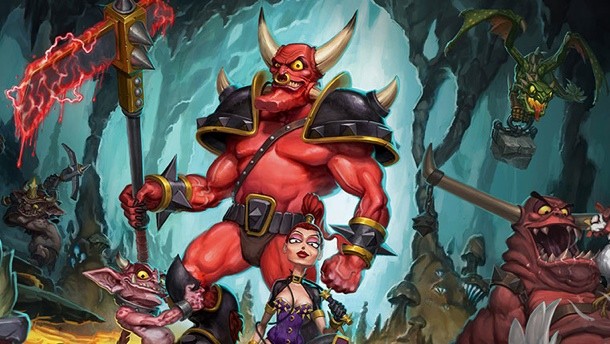Please support Game Informer. Print magazine subscriptions are less than $2 per issue
UK Advertising Authority Strikes Blow Against ‘Free-To-Play’ And EA’s Dungeon Keeper

The British Advertising Standards Authority has fired a shot against EA and, potentially, all uses of the term “free-to-play” in advertising. The government agency has upheld a complaint that the mobile version of Dungeon Keeper has mechanisms in place to push players toward monetization.
Dungeon Keeper was targeted earlier this year because consumers perceived that its monetization tactics are aggressive when compared with other uses of the business model. A complaint filed to the ASA points to severe limitations of the game unless in-app purchases are made and that the advertisement of “free” omits critical details.
The ASA’s ruling could be applied to most free-to-play games that involve recharge timers that lengthen with progress. “We therefore regarded it as extremely likely that players would reach a position where they would be unable to take any further meaningful or progressive action in the game until a timer had finished or been skipped, and that these periods would become longer and more significant, and the cost of skipping increasingly higher, as the player progressed,” the ASA assessment reads. “Although some of the features in the ad did not require waiting for a timer, we noted that these were either incidental or brief (such as ‘slapping’ the imp characters) or were dependent on other actions that were gated by a timer.”
The purchased currency, gems, can be acquired through playing, though the ASA notes that the accrual rate is so slow as to not be meaningful. Additionally, the ASA acknowledges that the game offers a timer, but that its ever-lengthening model creates an experience that does not align with expectations set by the advertisement.
Ultimately, EA has been found at fault for “misleading advertising.” There is no monetary penalty, though EA may not run the advertisement again or any future promotions without clearly disclosing “the limitations of free gameplay and role of in-app purchasing with regard to speeding up gameplay.”
Our Take
Gamers have started to object to the term “free-to-play” as a catch-all for any game that doesn’t include a charge for initial download. Those who are most informed have come to understand that there are different monetization models under that umbrella. However, casual consumers may not fully be aware that “free” doesn’t always mean that you can play unfettered.
I expect that, at least in the UK, EA and other purveyors of what we typically call “free-to-play” will have to find other terminology and more careful language to explain how their games will ask players for money. If this starts to bleed over to the rest of the world, we’ll all be better off for the transparency.










